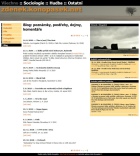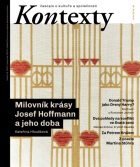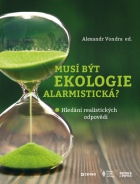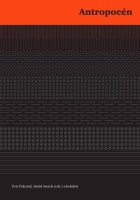Publikace, nahrávky a jiné výstupy
Přehled toho, co jsem napsal a zveřejnil (jako sociolog) nebo nahrál a vydal (jako muzikant). Prostě veřejně dostupné "výstupy". V případě, že je to právně a technicky možné, postupně sem dávám k dispozici i plné texty a do příslušných oddílů hudební sekce pak i nějaké hudební ukázky ve formátu mp3.

S kolegou Petrem Pokorným jsme přes léto sepsali text nazvaný „Lítáme v tom“. Pojednává o komplikovaných vztazích mezi vědou, politikou a angažovaností, a to na obecnějším pozadí sporů o klimatickou politiku/klimatická fakta. Čekali jsme v odpověď nejrůznější konfrontace a nedorozumění. Konfrontace přišla: na Vondrovu knihu, krátce po vydání, vyšla v Deníku Referendum recenze od Radka Kubaly. Náš text a naše pozice zesměšňuje a hrubě desinterpretuje. V tomto textu vysvětluji, v čem je Kubala mimo, asi trochu příznačně.

KONOPÁSEK, Z. (2020): Existence na mnoho způsobů: Vejde se do tabulky? Biograf, 71-72: 93-104
::::V roce 2013 vyšla kniha Bruno Latoura s názvem An inquiry into modes of existence: An anthropology of the moderns (AIME). Latour v této knize nanovo a zeširoka vysvětluje svůj přístup, úzce spojený s tzv. teorií aktérů-sítí (ANT). Snaží se napravit nejrůznější dosavadní nedorozumění kolem tohoto přístupu a připravit půdu pro „diplomatičtější“ vyjednávání o tom, co jako badatelé o světě kolem nás říkáme. Bez kontextu Latourova celoživotního díla je však tato kniha málo srozumitelná a sdělná. A také naznačuje, že pozdní Latour někdy poněkud nevyzpytatelně (a možná dokonce nezáměrně) ustupuje ze svých někdejších pozic. Ze světa v pohybu se v AIME tak trochu stává svět řádků a sloupců jakési tabulky.

POKORNÝ, P. & KONOPÁSEK, Z. (2020): We are all in the thick of it: A dialogue about climate change science, politics and activism. In: A. Vondra, ed: Must environmentalism be alarmist? Searching for realistic answers. Brno: Books & Pipes. Pp. 27-69
::::Two colleagues, paleoecologist and sociologist, talk about broader contexts of scientific doubting about contemporary climate policies.

POKORNÝ, P. & KONOPÁSEK, Z. (2020): Lítáme v tom - II.: Dialog o klimatu na pomezí vědy, politiky a aktivismu. Kontexty, 12 (6): 15-24 (přetištěná druhá část textu, který byl napsán pro sborník Musí být ekologie alarmistická?)
::::Pokračování. Paleoekolog Pokorný a sociolog Konopásek, jinak blízcí akademičtí kolegové, rozmlouvají o některých obecnějších souvislostech vědeckého pochybování nad současnou klimatickou politikou. Začínají u rozpaků přírodovědce nad tím, co si počít s ostře odmítavými až útočnými reakcemi širší veřejnosti vůči prezentaci odborného mínění, které jednoduše nezapadá do současného populárního kánonu. Tyto reakce nemají typicky charakter věcné disputace, ale dotýkají se přímo a výslovně osobní integrity, morálky a politického přesvědčení. Patří tohle do vědy? A pokud ano, tak jak? Co si má badatel s tímto rozměrem veřejné debaty počít? Paleoekolog se s takovými otázkami obrací na sociologa vědy, u kterého tuší nalézt porozumění. Sociolog se snaží naznačit komplikované rozhraní mezi vědeckým a politickým, jakož i choulostivost vztahů mezi odborným odstupem od věci a angažovaným ponorem do ní. Čerpá přitom nejen ze specifických zkušeností sociologa vědy, ale často dává na první pohled odtažité příklady z šířeji pojaté oblasti sociálních věd.

POKORNÝ, P. & KONOPÁSEK, Z. (2020): Lítáme v tom - I.: Dialog o klimatu na pomezí vědy, politiky a aktivismu. Kontexty, 12 (5): 30-39 (přetištěná první část textu, který byl napsán pro sborník Musí být ekologie alarmistická?). Dostupné na adrese https://casopiskontexty.cz/litame-v-tom-i/
::::První část. Paleoekolog Pokorný a sociolog Konopásek, jinak blízcí akademičtí kolegové, rozmlouvají o některých obecnějších souvislostech vědeckého pochybování nad současnou klimatickou politikou. Začínají u rozpaků přírodovědce nad tím, co si počít s ostře odmítavými až útočnými reakcemi širší veřejnosti vůči prezentaci odborného mínění, které jednoduše nezapadá do současného populárního kánonu. Tyto reakce nemají typicky charakter věcné disputace, ale dotýkají se přímo a výslovně osobní integrity, morálky a politického přesvědčení. Patří tohle do vědy? A pokud ano, tak jak? Co si má badatel s tímto rozměrem veřejné debaty počít? Paleoekolog se s takovými otázkami obrací na sociologa vědy, u kterého tuší nalézt porozumění. Sociolog se snaží naznačit komplikované rozhraní mezi vědeckým a politickým, jakož i choulostivost vztahů mezi odborným odstupem od věci a angažovaným ponorem do ní. Čerpá přitom nejen ze specifických zkušeností sociologa vědy, ale často dává na první pohled odtažité příklady z šířeji pojaté oblasti sociálních věd.

POKORNÝ, P. & KONOPÁSEK, Z. (2020): Lítáme v tom: Dialog o klimatu na pomezí vědy, politiky a aktivismu. In: A. Vondra, ed: Musí být ekologie alarmistická? Hledání realistických odpovědí. Brno: Books & Pipes. Str. 67-105
::::Paleoekolog Pokorný a sociolog Konopásek, jinak blízcí akademičtí kolegové, rozmlouvají o některých obecnějších souvislostech vědeckého pochybování nad současnou klimatickou politikou. Začínají u rozpaků přírodovědce nad tím, co si počít s ostře odmítavými až útočnými reakcemi širší veřejnosti vůči prezentaci odborného mínění, které jednoduše nezapadá do současného populárního kánonu. Tyto reakce nemají typicky charakter věcné disputace, ale dotýkají se přímo a výslovně osobní integrity, morálky a politického přesvědčení. Patří tohle do vědy? A pokud ano, tak jak? Co si má badatel s tímto rozměrem veřejné debaty počít? Paleoekolog se s takovými otázkami obrací na sociologa vědy, u kterého tuší nalézt porozumění. Sociolog se snaží naznačit komplikované rozhraní mezi vědeckým a politickým, jakož i choulostivost vztahů mezi odborným odstupem od věci a angažovaným ponorem do ní. Čerpá přitom nejen ze specifických zkušeností sociologa vědy, ale často dává na první pohled odtažité příklady z šířeji pojaté oblasti sociálních věd.

KONOPÁSEK, Z. (2020): Latour o antropocénu: Složité vztahy mezi intelektuálním a politickým radikalismem. Vesmír , 99 (150): 512-514
, 99 (150): 512-514
::::Bruno Latour patří mezi nejcitovanější autory v sociálních vědách. Renomé
získával především jako sociolog vědy, nikdy se ale nebránil přesahům do
ostatních oborů. Napsal řadu empiricky podložených studií – o laboratorních
vědeckých praktikách, o technologických inovacích, o fungování správního
soudu nebo o Luisi Pasteurovi a jeho době. V posledních letech na
sebe upozorňuje tím, že promlouvá o antropocénu (někdy píše o „novém
klimatickém režimu“). Pozoruhodné je, že jeho obrat k novému
tématu je často spojován s údajným obrácením názorovým. V tomto textu se toto obrácení, jakož i jeho obecnější souvislosti, kriticky rozebírám.

DVOULETÁ FÁMA (2020): Z dálky mává kohout piv (živě na Chmelnici, 23.3. 1989). Guerilla Records [GR 159-2]
[GR 159-2]
::::Asi nejlepší koncert Dvouleté fámy z let 1988-89, vydaný k poctě Radomila Uhlíře, který zemřel v dubnu 2019.

KONOPÁSEK, Z. (2020): Antropocén: Více než jeden, méně než dva. In: P. Pokorný & D. Storch, eds: Antropocén. Praha: Academia. Str. 32-50
::::Antropocén je pojmenování pro současnou situaci a zároveň specifické vidění světa, které k tomuto pojmenování vede. Pojem samotný se zrodil jako označení současné epochy geologického vývoje Země. Byl podpořený narůstajícím množstvím vědeckých údajů o komplexních a dlouho jen tušených dějích v tzv. planetárním systému, o kritické míře vlivu lidské činnosti na tento systém a o souvisejících globálních proměnách. Debaty o antropocénu dalece překročily snahy o formální geologické definování jeho počátku nebo popisy dílčích vědeckých nálezů. Obsah pojmu se rozšířil a rozmlžil. Antropocénem už není jenom nějaká „epocha“, od – do, „tam venku“, kterou lze při dostatečném vědeckém odstupu od světa za pomoci obrovských datových souborů občas zahlédnout. Antropocén zároveň označuje situaci, ve které stále zřetelněji vnímáme procesy, které nevratným a často hrozivým způsobem proměňují okolní svět a kterým nelze dost dobře rozumět na pozadí buď-anebo kategorií moderního rozumu, v prvé řadě na pozadí samozřejmého rozlišování mezi tzv. Přírodou a tzv. Společností či Kulturou. Důležitým se stává studium vztahů, a to napříč doménami, které jsme dosud považovali za nesouměřitelné či vzájemně se vylučující. Mění se nejen vztah přírodních a sociálních věd, ale také postavení vědy obecně: odvolávat se na „holá fakta“ a apolitičnost vědy přestává stačit; vědci se dostávají pod hodnotové a politické tlaky, na které nebyli zvyklí. Debaty o antropocénu byly v mnoha směrech připraveny debatami jinými, dřívějšími – povýtce zhusta na půdě sociálních či humanitních věd. Antropocenní rámec však přináší možnost, aby tyto debaty byly s přičiněním přírodních vědců doceněny, dále rozvinuty a lépe uzemněny.

KONOPÁSEK, Z. / SONERYD, L. / SVAČINA, K. (2018): Lost in translation: Czech dialogues by Swedish design. Science & Technology Studies, 31 (3): 5-23
::::This study explores the journey of a model for stakeholder involvement called RISCOM. Originally developed within the field of radioactive waste management in Sweden, it was later used in the Czech Republic to re-establish public dialogue in the process of siting a geological repository. This case offers an opportunity to empirically study the fragility and ambiguous results of organized spread of public involvement across various domains of technological innovation and national contexts. We show how three circumstances – (1) the ambition to make RISCOM an internationally used model for public dialogue, (2) the specific situation in the Czech siting process, and (3) the short-lived and limited success of the subsequent Czech dialogues by Swedish design – were intrinsically related and sustained each other. Better understanding of such complexities might contribute to a more realistic attitude toward technologized democracy, i.e., toward practices of public deliberation increasingly becoming instrumental, transferable, and depoliticized.












